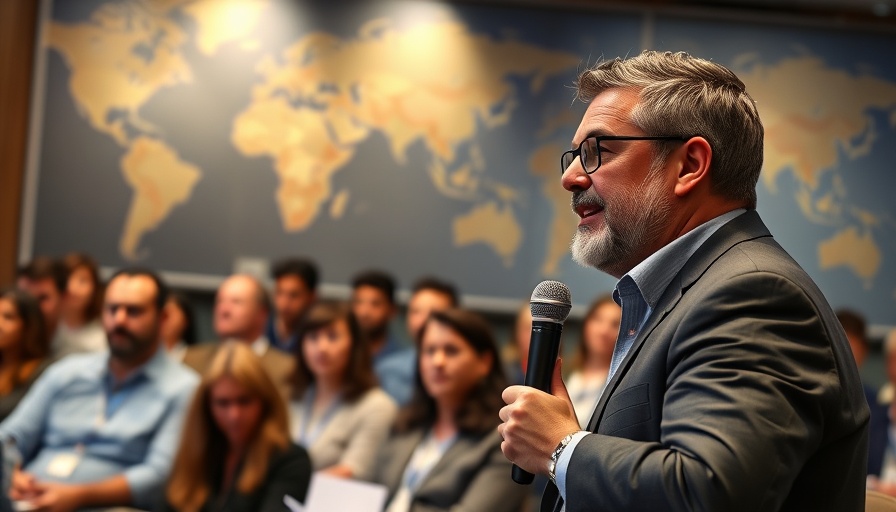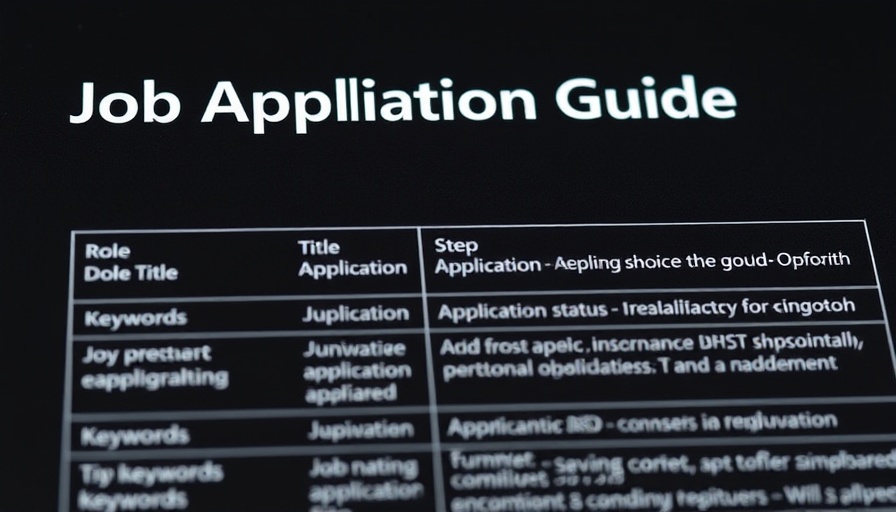
Finding Hope Amidst Conflict: The Unexpected Path for Peace
In a world filled with violence and fear, especially in conflict zones like the Middle East, it’s easy to overlook the profound issues looming just beneath the surface. In her illuminating TED talk, Nada Majdalani sheds light on an unexpected plan for peace, rooted in environmental sustainability and regional cooperation. As Majdalani points out, the continuous strife is often exacerbated by another silent threat: climate change. Rather than being mere collateral to the war, this critical issue could serve as a unique catalyst for collaboration between nations.
In 'An Unexpected Plan for Peace in the Middle East,' Nada Majdalani highlights the impactful role of environmental collaboration in achieving peace, prompting us to explore these ideas further.
Learning from History: The European Union Model
Majdalani draws an inspiring parallel to the European Union, conceived from post-World War II, where historical enemies chose cooperation in place of continuing struggles. The Coal and Steel Agreement between Germany and France transformed their relationship from adversaries to partners, leading to prosperity. She challenges us to envision a similar outcome in the Middle East, leveraging renewable resources like solar energy and seawater instead of coal and steel.
The Power of EcoPeace and the Peace Triangle
Majdalani represents EcoPeace Middle East, a groundbreaking organization collaboratively led by Israeli, Jordanian, and Palestinian directors. The core of their initiative is the "Peace Triangle," which envisions a cooperative economy founded on shared resources—water, energy, and sustainable transport. By highlighting their plans to integrate with the India-Middle East-Europe Economic Corridor (IMEC), Majdalani presents a vision where mutual dependence fosters not only economic stability but also enduring peace.
Combatting Climate Change Through Cooperation
In a region fraught with power dynamics skewing resource access, Majdalani emphasizes that issues such as water scarcity and pollution transcend borders. They necessitate the very collaboration that EcoPeace promotes. By equipping young adults from different backgrounds with negotiation skills around water diplomacy and climate change, the organization furthers the possibility of peaceful coexistence. This training grants them the tools to reshape the future of their regions.
Challenging the Status Quo: Dreams vs Realities
Majdalani bravely acknowledges the skepticism surrounding these ideas. History tells us that dreams often face the barrage of cynicism, particularly during warfare. However, her firm belief is that radical change is possible through joint action regarding ecological and humanitarian crises. The Peace Triangle concept may sound like a distant utopia, yet it presents a real opportunity to foster interdependence that could lead to a two-state solution.
Conclusion: A Call for Collective Action
The pathway towards peace is seldom straightforward, yet as Majdalani's narrative reveals, it's essential to dream and pursue achievable goals amidst turmoil. Her invitation to share the message of the Peace Triangle underscores the importance of collective hope and action. In a context where many may seem hopeless, acknowledging that there are proactive individuals striving for cooperation can change narratives. Together, citizens from various backgrounds can work towards a brighter, shared future.
 Add Row
Add Row  Add
Add 




Write A Comment